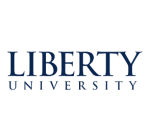HIEU 201 Chapter 2 Quiz- Liberty University HIEU 201 HISTORY OF WESTERN CIVILIZATION I
- From History, General History

- Samina
- Rating : 0
- Grade : No Rating
- Questions : 0
- Solutions : 635
- Blog : 0
- Earned : $828.85

HIEU 201 Chapter 2 Quiz- Liberty University HIEU 201 HISTORY OF WESTERN CIVILIZATION I
HIEU 201 Chapter 2 Quiz, Liberty University
Question 1
The biblical account of the Exodus identifies ________ as leading the Hebrews out of Egypt.
a. Abraham
b. David
c. Saul
d. Moses
Question 2
Under the rule of David's son Solomon,
a. Israel reached the height of its power and prosperity.
b. the Israelites lost Jerusalem to the Philistines.
c. Jerusalem decreased in importance.
d. old tribal patterns gained renewed strength.
Question 3
The Old Testament
a. is a record of ancient Jewish history compiled by research historians.
b. describes the efforts of the Jews to understand the ways of God.
c. explores only human weakness and cruelty.
d. depicts demigods as its heroes.
Question 4
The Hebrews thought of Yahweh as
a. a universal spirit that resided in the elements of nature, such as the earth, the moon, and the sun.
b. the great creator of the universe, who had then withdrawn entirely from earthly affairs.
c. fully powerful and therefore fully free.
d. a superhuman deity who required food, drink, sleep, and sexual gratification.
Question 5
Which of the following describes the Hebrews' relationship with the natural world?
a. Nature was divine, and natural phenomena were invested with supernatural qualities.
b. God was a part of nature and was thus affected by numerous natural forces like storms.
c. Natural phenomena were the result of God's handiwork.
d. The Hebrews demystified nature by creating theoretical science.
Question 6
In the history of the Hebrew people, the covenant has served to
a. emphasize the unique relationship of God to the Israelites as a chosen people that had accepted God's moral code.
b. emphasize the all-importance of the Hebrew nation over all other people.
c. encourage the Hebrews to turn inward and take a very limited role in human affairs.
d. justify the exploitation and oppression of the weakest members of society.
Question 7
The historical significance of Israelite law was that it
a. introduced the idea of private property as the most important concept in society.
b. demonstrated greater ethical awareness than other legal codes of the Near East.
c. embraced the idea that law should treat people differently depending on their wealth.
d. rejected protection of the widows, orphans, and slaves.
Question 8
The Hebrews regarded history as
a. a process leading to a goal.
b. a great cycle, with the same events occurring over and over again.
c. a purely secular subject.
d. the random result of human acts.
Question 9
During the flowering of the prophetic movement, the Hebrew prophets
a. embraced parochialism and believed Israel's sacred mission was to focus on the chosen people alone.
b. insisted that Yahweh would be pleased only by the observance of proper rituals and ceremonies.
c. preached social responsibility and criticized those who emphasized accumulation of possessions and wealth.
d. saw poverty and injustice as facts of life that would be futile to oppose.
Question 10
All of the following is true of universalism in Hebrew thought EXCEPT
a. its stress on the special nature and destiny of the Hebrews as God's chosen people.
b. its emphasis that Israel was charged to lead in the struggle against idolatry.
c. its concern for all humanity.
d. its contradiction of the narrow, tribal origins of Hebrew society.
In
Question 11
The first five books of the Old Testament are known as the
a. Talmud.
b. Torah.
c. Quintarch.
d. Tanak.
Question 12
The Hebrews originated in
a. Palestine.
b. Mesopotamia.
c. Egypt.
d. Canaan.
Question 13
During the eleventh century B.C., the leadership of Saul united the ________ Hebrew tribes in Canaan.
a. twelve
b. twenty
c. two
d. ten
Question 14
After the fall of Israel to the Assyrians in 722 B.C.
a. the Hebrews experienced an immediate return to their former power.
b. the prophets Isaiah, Ezekiel, and Jeremiah declared that the Hebrews had been forsaken by Yahweh.
c. thousands of Hebrews were exiled to Syria.
d. many Hebrews lost their identity as the people of God.
Question 15
The Hebrews' concept of Yahweh
a. emphasizes the God's power as ruler of all and subject to none.
b. shows that they were monotheists from their earliest days in Mesopotamia.
c. is similar to that of other ancient monotheisms, such as the worship of Aton in Egypt.
d. views Yahweh as one of many gods, all deserving honor and obedience by humans.
Question 16
Which of the following is a fundamental Hebrew belief about the individual?
a. Human beings lacked the power to choose between righteousness and wickedness.
b. Human beings ranked equally with all other elements of God's creation.
c. God desired his people to grovel before him and forbid them the capacity to take responsibility for their conduct.
d. God did not create people to be his slaves.
Question 17
The Hebrews' belief in moral responsibility resulted from
a. communal traditions.
b. an emphasis on the family as the source of morality.
c. an awareness of individual human beings as having free will to act.
d. pride in oneself.
Question 18
The Old Testament discussed slaves
a. as deserving no protection.
b. as human beings deserving justice and moral treatment.
c. as the absolute property of the slave-owner, to do with as he wished.
d. in the same way as all other ancient Near Eastern law.
Question 19
Under Hebrew law, within the family
a. the father had supreme authority.
b. a divorce could be granted by request of either the husband or wife.
c. women were treated as property.
d. women had full legal rights.
Question 20
The legacy of the ancient Jews includes all of the following EXCEPT
a. monotheism.
b. a fundamental component of Christianity.
c. the idea that all time is cyclical.
d. the value Westerners place on the individual.
[Solved] HIEU 201 Chapter 2 Quiz- Liberty University HIEU 201 HISTORY OF WESTERN CIVILIZATION I
- This solution is not purchased yet.
- Submitted On 28 Feb, 2021 09:36:33

- Samina
- Rating : 0
- Grade : No Rating
- Questions : 0
- Solutions : 635
- Blog : 0
- Earned : $828.85


Liberty University HIEU 201 Lecture quiz 2 Absolute Satisfaction

HIEU 201 Quiz 4 Liberty University | Complete Solution
• Question 1 2.6 out of 2.6 points According to “Rise of Christianity,” which of the following forms the roots of the Christian religion? Selected Answer: Judaism • Question 2 According to “Rise...

HIEU 201 Quiz 3 Liberty University | Complete Solution
solution • Question 1 2.6 out of 2.6 points According to “Hellenistic Age,” Philip II Selected Answer: Both a and c • Question 2 2.6 out of 2.6 points True or False: According to “Punic Wars,&rd...

HIEU 201 Chapter 10 Quiz Liberty University | Complete Solution

HIEU 201 Chapter 6 Quiz Liberty University | Complete Solution
solution 1. Plebeian concessions during the Struggle of the Orders included all of the following EXCEPT 2. The Romans treated the Italian peoples they conquered 3. After Carthage's stunning victory at the battle of Can...
The benefits of buying study notes from CourseMerits

Assurance Of Timely Delivery
We value your patience, and to ensure you always receive your homework help within the promised time, our dedicated team of tutors begins their work as soon as the request arrives.
Best Price In The Market
All the services that are available on our page cost only a nominal amount of money. In fact, the prices are lower than the industry standards. You can always expect value for money from us.


